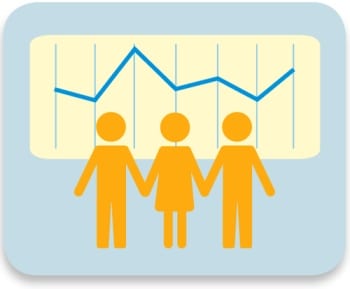
Starting today cancer researchers will be gathering in Chicago at the meeting of the American Society of Clinical Oncology.
Researchers and doctors at the annual meeting – the world’s largest oncology conference – will hear about the most promising drugs being developed to fight cancer. They’ll spend five days learning about the new science around a vast array of cancers, and discuss the newest therapies as well as the latest and most innovative clinical trials. They’ll wrestle with broader issues on ethics and hunt out presentations about the most successful cancer prevention.
But this year we hope that a few will also take notice of a new approach to cancer research being pioneered by 23andMe.
Along with our scientific advisors – who include Drs. George Demetri, Robert Maki, Judy Garber, and Mark Robson, – our very own Dr. Kim Barnholt, the Research Project Manager for both our Sarcoma and Myeloproliferative Neoplasms (MPN) research communities, is attending. Kim will be presenting some of the highlights of our 23andMe’s work on sarcoma.
We’ve been able to recruit almost 1,000 people with these cancers that develop in bone and soft tissue, making our sarcoma research cohort one of the world’s largest. Sarcoma, which strikes about 14,000 people each year, is not one kind of cancer, but many different ones.
The complexity of what turns out to be dozens of subtypes of sarcomas makes treating and studying them difficult. But using web-based tools allows for both quick recruitment and efficient large-scale genome-wide studies of the disease. It also gives people with sarcoma, who might be geographically isolated or far away from cancer research centers, or too sick to travel, an easier way to participate in research.
Kim is most encouraged by the engagement of the community with more than 80 percent of participants having completed important surveys. Last summer, she put together an evening gathering for the community giving patients a chance to directly interact with her and other scientists at 23andMe, as well as with sarcoma researchers and advocates.

“It’s important for researchers to meet patients,” Kim said recently. “It gives more meaning to what we do. There’s more than just numbers in research. Understanding the personal stories and each person’s journey gives what we do more relevance and meaning, but it also gives us a better picture of the disease. It all goes back to the quality of measurement in research. If you can talk and interact with patients and they have a voice and that is part of the data collection, it improves the what we do. I know it does for my work.”
Kim plans to present some preliminary data in Chicago and report back over the next few days on some of the most interesting presentations.



